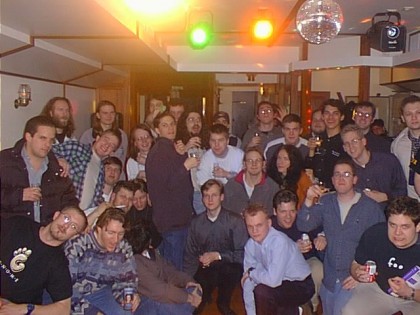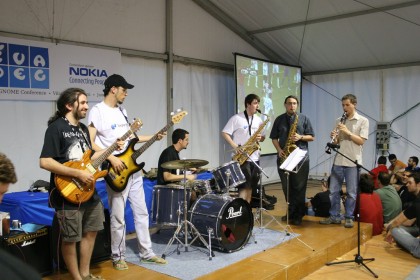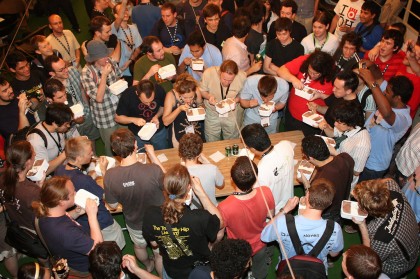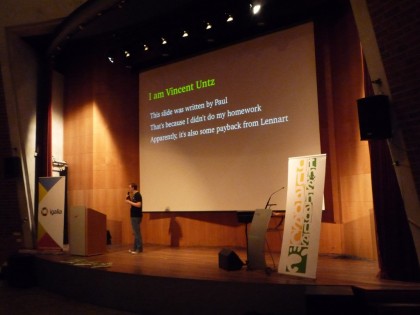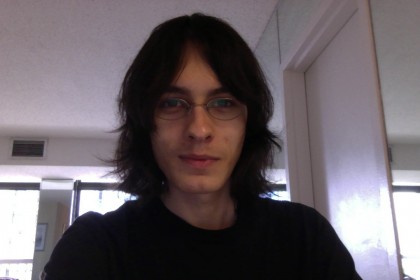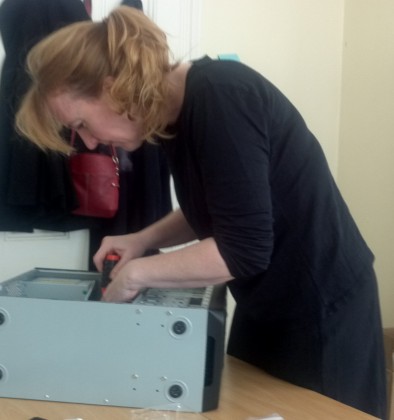
Cathy Malmrose discovered Free Software in 2007, when her son showed her Ubuntu. She realized that she could build computers optimized for GNU/Linux, and now runs ZaReason, a company which sells computers preloaded with Linux. Now ZaReason has opened its first shop in Berkley, CA and is poised to launch ZaTab, a Linux tablet.
We are lucky to have Cathy speaking at this year’s GUADEC conference, and she recently took the time to speak to us about ZaReason and the upcoming conference.
Zareason states that it aims to showcase GNU/Linux as the superior operating system. What are your thoughts about the ethics of free operating systems and providing hardware that just works out of the box for customers?
I am not an idealist. Free and open just makes sense. In so many aspects of life, lockdown only leads to longterm misery.
Take the food industry for example. If we allowed the manufacturers to do their work behind closed doors, can you imagine the types of things they would put in our food to save money? Even with the food industry being open, there are still problems. Think pink sludge (scraps of meat treated with ammonia) or grocery store items with a list of ingredients that read like a chemical biology textbook. At least with legally mandated openness they have to tell us what they put in the food so we can make an informed choice.
Some people compare the electronics industry to other sectors (such as the auto industry) and advocate for closed source using safety and security as their main reasoning. While I can see their point, I believe that proprietary development is short-sighted. My personal experience has been that the decision to make code proprietary always comes from a money-first position. Bad decisions are made when money rules over the long-term well-being of the code base.
I believe that free and open is the easiest and most effective way to keep our hardware working properly (and keep it honestly secure). Long-term.
What can we expect from your keynote at GUADEC?
I have given it a lot of though re: “What could we talk about that would result in further growth and acceptance of GNOME as world-class, something that could benefit people in general?” I will give OEM-level insight + some non-developer user-level insight of future GNOME users. Half will be practical, next-step information and half will be long-term view. Hopefully it will get developers and GNOME Foundation team members thinking about (and answering) questions for the community and the public at large.
Also, I like to do a Trivia test at the end of each talk I give. I usually ask questions about women in early computing. It helps people be more aware of women’s contributions in the early years, something many people wouldn’t even listen to otherwise. I will be giving away a few Tux keyboards (as many as will fit in my luggage, probably just two). I have done the Trivia thing at a dozen other talks, both big and small and it is always fun. It’s corny but I love it.
What do you expect from GUADEC?
I expect to meet lots of great people. I want to hear insights and opinions from the GNOME community.
We at GNOME are committed to making Free Software world as inclusive as possible to women. Have you encountered challenges as a successful women in Free Software?
To be honest, I don’t give it much thought. I have been lucky to work with men who are respectful and generous. Of course people I meet often assume I don’t know much, but that usually helps me learn more in the end.
My view on encouraging more women to enter the tech sector is simply to encourage “a programmer’s way of thinking.” In much of what I read for my daughter, girls are often encouraged to: 1. ask a friend for help (rather than solve it herself), 2. complain, or 3. give up.We need to teach our girls and women to switch their thought processes to: 1. hammer the problem yourself until you understand it, 2. don’t complain, just make your best guess, and 3. be so persistent that you wouldn’t even consider giving up as an option. It doesn’t have to be their main way of approaching the world, but a person has to be capable of it. Until a person, female or male, can think like a coder, there’s not much use in encouraging them to enter the tech sector.
As a product reseller, what would you like to see from GNOME?
First, I cringe at the thought of being a “product reseller” for many, many reasons. I hope you don’t mind if I reframe the question?
What do you think we all could do to better position GNOME and other Free Software as something desirable, high-end? Essentially still the same question but without the reseller concept. Quick rant on reseller concept: a reseller simply repackages something for the public. We do so much more than just pre-load a distro!! When people say that’s all we do, it dismisses all our hard work in other areas and wow, that doesn’t feel good. Since the goal is to motivate each other to do good things, I like to stay away from that concept as much as possible and just focus on building cool stuff. Thanks.
The free and open community has had many turning points but the current one, secure boot, hits “below the belt” at the OEM level. I believe GNOME is the best positioned out of anyone in the F/LOSS community. There is so much potential and strength in what the GNOME Foundation + developers have built.
I can easily picture a future where the GNOME distro ships on many different types of devices, laptops, tablets, desktops, servers, the works. Full distro, full package, nothing to hinder use by the other 99% of society. My ideal end goal would be to hear someone say, “Yeah, I use GNOME,” with a level of pride, admiration, and adoration-for-quality that a Mac fanboy would use (if Mac fanboys were cool).
What are you looking forward to most about GUADEC?
Not sure. Everything?
Find out more about Cathy and ZaReason at zareason.com and come to GUADEC to meet her in person!
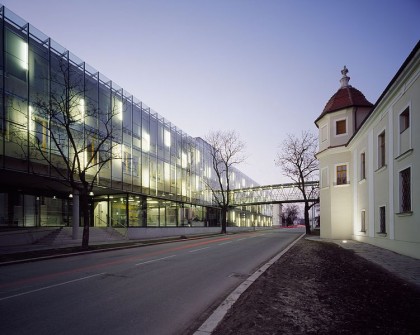
![By Jan Symon (Jan Symon) [CC-BY-SA-3.0], via Wikimedia Commons](http://www.gnome.org/wp-content/uploads/2013/07/Hrad_Špilberk_v_Brně_vyrez.jpg)
